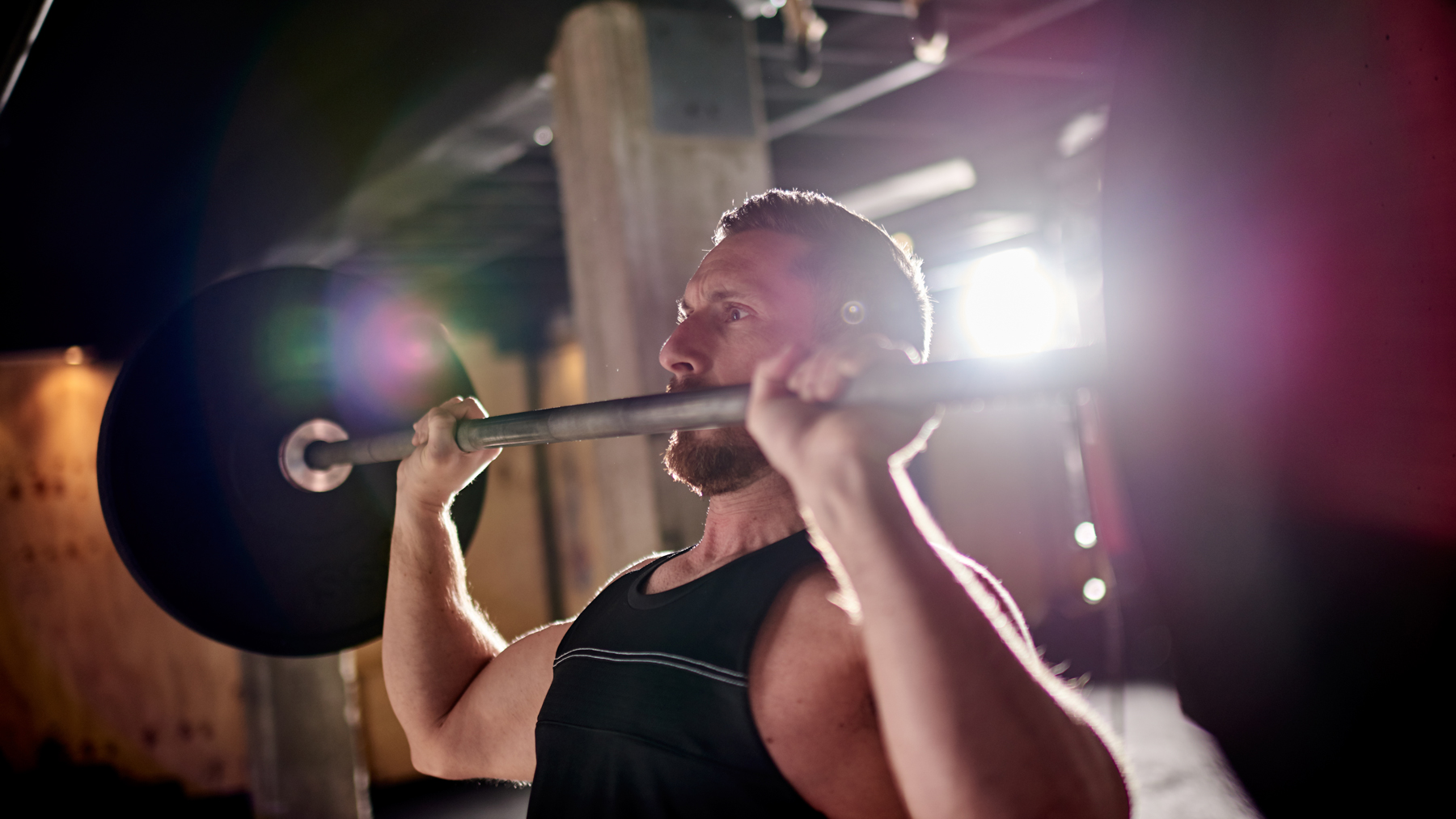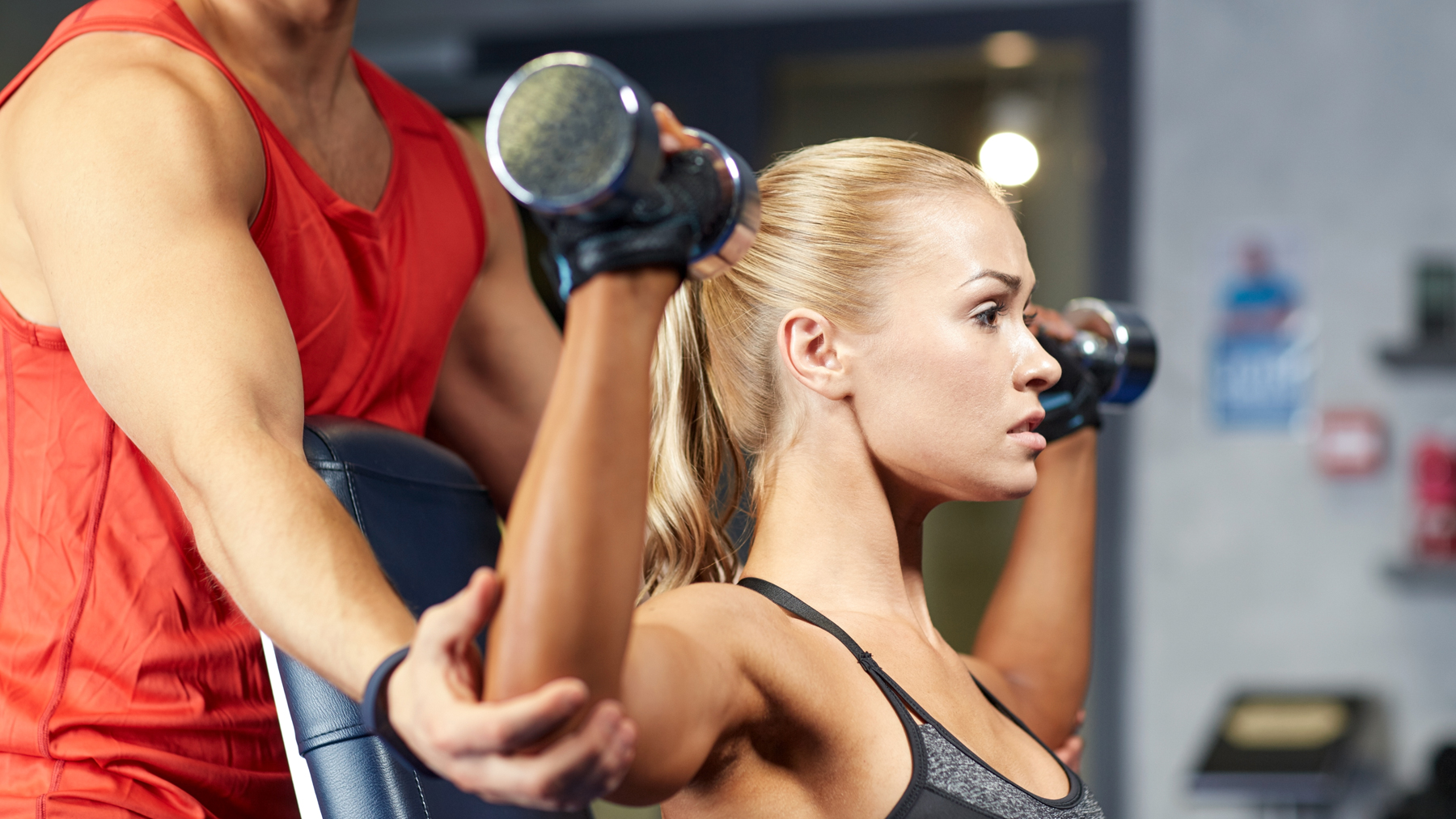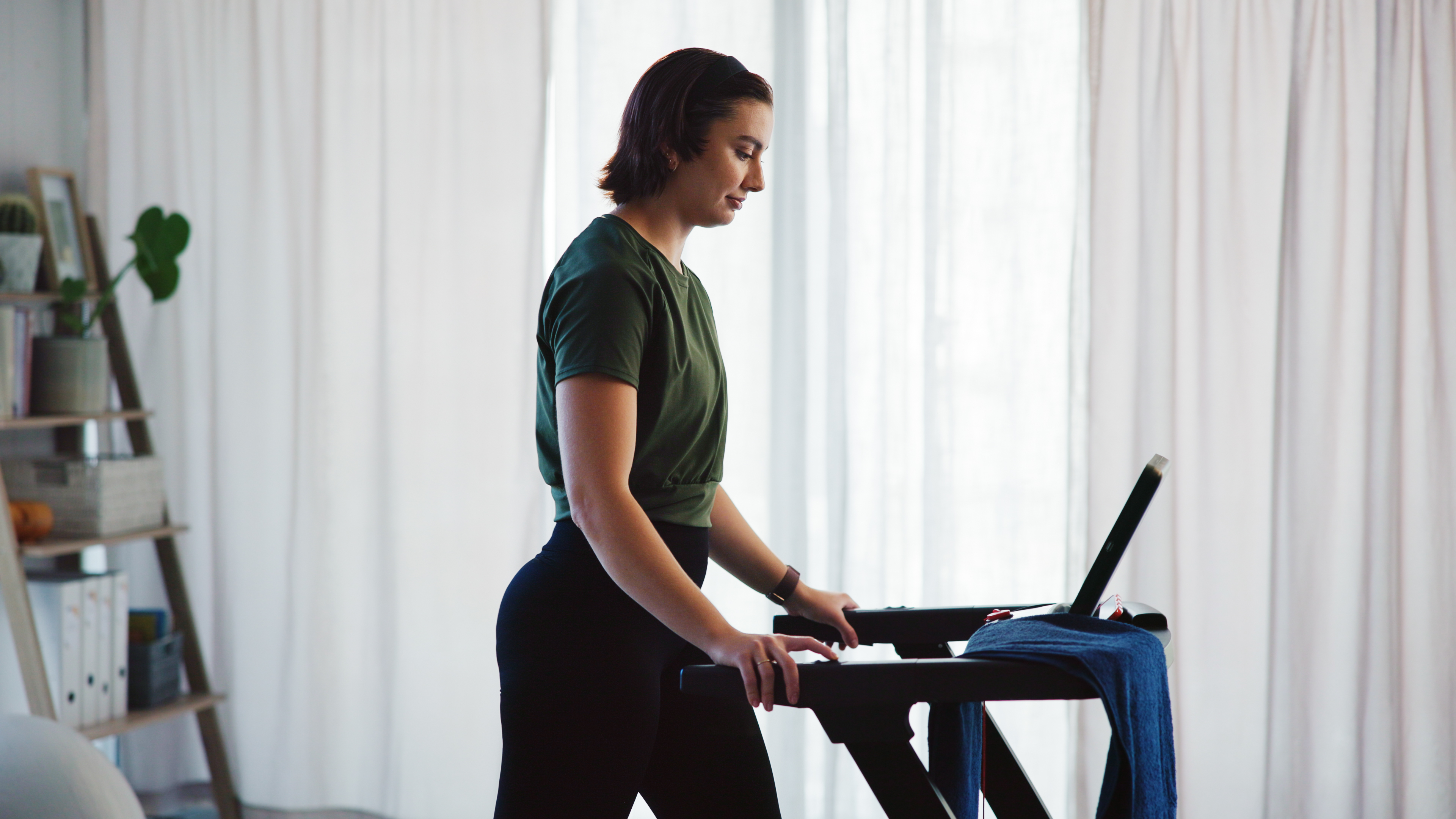
Dumbbell vs barbell shoulder press, both exercises target the same shoulder muscles, namely anterior, middle, and posterior deltoids. They will both heavily engage your triceps, biceps, rotator cuffs and upper back muscles, but which one is better?
No matter whether you do them with a barbell at the gym, or with a set of best adjustable dumbbells in the comfort of your home, you can expect fairly similar results. So does it matter which side you pick in the dumbbell vs barbell shoulder press dilemma? Absolutely.
The shoulder press is the king of shoulder exercises and the key to a stronger, more defined upper body. This classic push movement can be done in several different ways, and using multiple different techniques. The two most common variations are the barbell and dumbbell shoulder presses, and each has its own unique advantages and disadvantages. Here, we discuss which one of these exercises may be a better option for you, depending on your specific fitness goals, injuries, and preferences. We also asked Josh Davies, personal trainer at Aimee Victoria Long, to share where he stands on the matter.

Josh is a top personal trainer in London, based in High Street Kensington. Ex-professional rugby player and an injury prevention specialist, Josh trains his clients using a mixture of strength, conditioning, mobility and high intensity training. Josh has trained a number of CEO’s, Ultra high net worth individuals and professional athletes.
Pros and cons of a dumbbell shoulder press
Pros
There are several advantages to the dumbbell shoulder press. This variation is a great option if you want to correct any musculoskeletal imbalances, particularly those between your left and right arm. Because your arms move independently of each other, you end up having to apply the same amount of force on both sides. This way, you are not able to rely on your stronger arm to lead the movement, which keeps reinforcing the differences.
Dumbbell shoulder press is also easier to modify. “With this variation, you can choose the lifting path above your head, meaning you are able to generate less strain on your shoulders if you have any impingements,” says Josh Davies. “You can also modify your grip to make it a more comfortable movement. For example turning your hands inwards (the so-called neutral grip) puts the shoulder in a stronger lifting position,” he adds.
When deciding on the dumbbell shoulder press vs barbell shoulder press issue, you may also want to consider what you want to achieve. For example, if carving out great-looking shoulders is your primary concern, you may benefit more from using dumbbells. “This exercise is good for hitting all three muscles in your deltoids, which in turn is good for building that well rounded shoulder look that gym goers are often chasing,” agrees Josh Davies. According to a study published in the Journal of Strength and Conditioning Research, the seated dumbbell press has 11% greater anterior deltoid activation, while the standing dumbbell press has 7% greater middle deltoid recruitment.
Cons
Dumbbell shoulder press is more difficult to master than a barbell shoulder press. This variation also requires more effort from your muscles. “One of the cons of dumbbell shoulder press is that you are not able to lift as much as you could with a barbell. Meaning if you’re trying to build strength and muscle mass, it’s a little harder,” agrees Josh Davies.
Start your week with achievable workout ideas, health tips and wellbeing advice in your inbox.
Pros and cons of a barbell shoulder press
Pros
There are several advantages to a barbell shoulder press, particularly if your goal is to get stronger. “Being a multi-joint exercise, the barbell shoulder press has the ability to increase muscle mass and strength like no other. It activates and works both the anterior (front) and medial (middle) heads of the deltoid, as well as other areas such as traps, triceps, and upper chest,” says Josh Davies. To put it simply, this variation may allow you to lift heavier, and progress faster with your strength goals.
Cons
There are some disadvantages to this variation though. “The cons of barbell pressing mainly come from its inability to distribute the load to the rear deltoids (the back of the shoulder). This is caused mainly by the bar path it travels - a barbell is coming in front of you, rather than directly downwards like with a dumbbell. If performed incorrectly, this movement can be potentially harmful,” explains Josh Davies.
Barbell shoulder press can also give you a false sense of safety. “Short ranges of movement and the tendency to lift with your ego, meaning too much weight is on the bar, can result in shoulder injuries and lower back pain,” he adds.

Barbell vs dumbbell shoulder press: will they get the same results?
Barbell vs dumbbell press: which one should you do to get better results? The answer to this question may not be straightforward. “Both dumbbells and barbells have benefits and can most definitely be used,” agrees Josh Davies. On the whole, you can get the same results from using either type of weight, as long as the variation you choose suits your abilities. “For beginners, I always recommend starting with dumbbells to get used to the movement. It is far safer and I would also advise using a bench in a seated position to protect the lower back before thinking about going into a standing position,” advises Josh Davies.
Dumbbell vs barbell shoulder press: which is better?
Dumbbell shoulder press is no better than a barbell shoulder press - they are just slightly different. Your ultimate choice will depend on your personal preferences, comfort level, and musculoskeletal abilities.
“There really is no better option,” agrees Josh Davies. “For somebody who is an experienced lifter, and if they’re looking to gain strength and put on general muscle mass, I’d lean towards the barbell. You’re able to use more weight meaning you’re able to overload the shoulders in a more effective way. However if you’re training purely for aesthetics then I’d lean towards using dumbbells. Furthermore if you have any slight shoulder impingements or imbalances then most definitely reach for the dumbbells rather than the barbell. The risk of injury is greatly reduced due to the fact you’re able to control the path of movement in comparison to the barbell,” he says.
If you would rather train your shoulders without using any weights, but not sure how to, check our guide to shoulder bodyweight exercises for useful tips and advice. And if it happens that you strain your muscles, our shoulder muscle pain workout will help you improve your strength in spite of the injury.

Anna Gora is a Health Writer for Future Plc, working across Coach, Fit&Well, LiveScience, T3, TechRadar and Tom's Guide. She is a certified personal trainer, nutritionist and health coach with nearly 10 years of professional experience. Anna holds a BSc degree in Nutrition from the Warsaw University of Life Sciences, a Master’s degree in Nutrition, Physical Activity & Public Health from the University of Bristol, as well as various health coaching certificates. She is passionate about empowering people to live a healthy lifestyle and promoting the benefits of a plant-based diet.
-
 A personal trainer says this simple 20-minute treadmill workout could be one of the most effective workouts that you do
A personal trainer says this simple 20-minute treadmill workout could be one of the most effective workouts that you doOnly got 20 minutes to exercise? Hop on the treadmill
-
 Start your day with this Pilates-inspired core workout before anyone else wakes up—it only takes 10 minutes
Start your day with this Pilates-inspired core workout before anyone else wakes up—it only takes 10 minutesThis short workout is ideal for beginners
